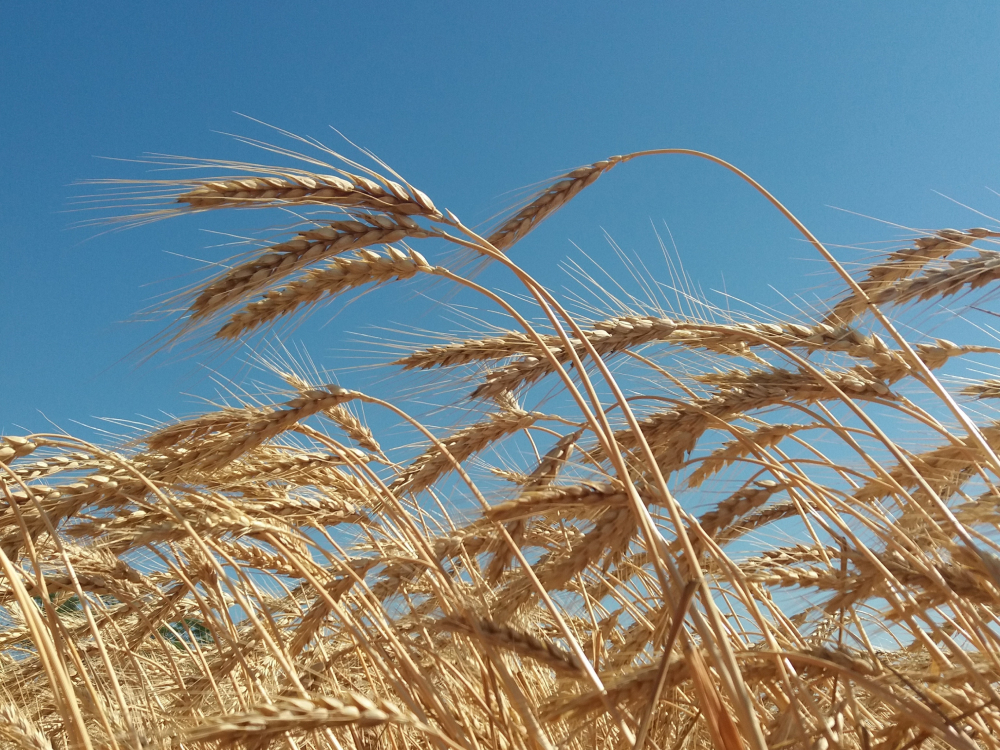Selecting a pet food is now a frightening activity for pet homeowners, with new corporations popping up left and proper, and complicated promoting and advertising and marketing campaigns. Most just lately, the push towards grain-free, gluten-free, and “clear” pet meals has dominated the market. So, are grains unhealthy for canines? Is gluten unhealthy for canines? Most grains supply good dietary worth and will not be inherently unhealthy, however some conditions do warrant avoiding these elements. We reply questions that can assist you resolve whether or not to feed your canine a grain- or gluten-free weight loss plan.
What’s gluten?
Gluten is the time period for the protein portion in lots of grains, together with wheat, rye, and barley, however mostly refers to wheat gluten. Gluten in pet food can improve protein content material with out including costly animal elements, and may also help enhance meals texture and consistency. Like different proteins, gluten consists of important amino acids vital for physique capabilities, however isn’t thought of “full,” as a result of not all the mandatory important amino acids are included. Full diet requires a mix of plant and animal proteins.
What’s gluten-free pet food?
Gluten-free pet food and gluten-free canine treats keep away from the usage of gluten-containing grains, and as a substitute use gluten-free carbohydrate sources, comparable to corn, potatoes, or rice. Gluten-free diets will not be essentially more healthy as a result of gluten is absent, however advertising and marketing claims that gluten causes allergic reactions in canines, or is in any other case unhealthy for canines or folks, have misled many individuals. Pet homeowners can also keep away from gluten-containing pet meals as a result of they or a member of the family have a severe gluten allergy referred to as celiac illness and don’t want gluten of their residence.
Is grain-free pet food the identical as gluten-free pet food?
All grain-free canine meals are gluten-free, as a result of solely grains comprise gluten. These meals usually use potatoes or legumes as a major carbohydrate supply and keep away from grains fully. Nonetheless, gluten-free pet food could comprise some grains, together with rice, corn, or oats, so not all gluten-free pet food is grain-free. Many pet homeowners select grain-free meals due to false advertising and marketing claims that grains are used as non-nutritive, low cost fillers, or lead to itchy pores and skin.
Are gluten-free or grain-free canine meals secure?
For many canines, grain- and gluten-free diets are as equally wholesome as grain-containing diets with related nutrient profiles. Most canines can safely eat any weight loss plan that’s full and balanced, meets AAFCO requirements for his or her life stage, and maintains good weight, power, and digestion.
One essential security word is the doable hyperlink between grain-free diets and a coronary heart situation referred to as dilated cardiomyopathy. Whereas in depth veterinary and FAA analysis has not but decided the explanation, most diets linked to the illness comprise potatoes or legumes (i.e., peas, lentils) as the primary carbohydrate supply. As a result of so little is understood about this hyperlink, involved pet homeowners ought to take into account a weight loss plan for his or her pet that avoids these elements or discuss to their veterinarian about different weight loss plan choices.
Can canines have wheat?
Wheat is a grain and a very good supply of simply digestible carbohydrates, protein, minerals, and fiber. Gluten is wheat’s predominant protein element, and mixed with different pet food elements, wheat may also help spherical out a balanced, nutritious weight loss plan. Wheat, and its gluten, are completely secure and wholesome for many canines.
Do gluten or wheat contribute to meals allergic reactions?
Discussing meals allergic reactions is essential when speaking about wheat, grains, and gluten. Most claims towards these elements are based mostly on false beliefs that they trigger allergic reactions, itchy pores and skin, or different antagonistic reactions in canines, which is partly true, as a result of these reactions do happen, however not often. Allergy symptoms in canines manifest as itchy, purple, infected pores and skin, and typically embrace vomiting or diarrhea. Environmental allergens, comparable to pollen or mould, principally trigger pores and skin illness, however just a few will be pinpointed to a meals allergy. A examine of 278 meals allergy circumstances in canines confirmed that the majority had been brought on by beef, dairy, rooster, egg, lamb, soy, pork, and fish, with solely 42 circumstances traced to wheat or wheat gluten.
Which canines ought to keep away from wheat or gluten?
Canine who could have a meals allergy or power gastrointestinal (GI) illness ought to bear a weight loss plan trial with subsequent ingredient challenges to find out the offender. This may be time-consuming, and a few canines enhance a lot on the trial weight loss plan that homeowners don’t need to danger a relapse by reintroducing elements to find out the issue. Canine with a confirmed wheat or gluten allergy, or these with an unknown meals allergy, ought to keep away from these elements.
Just a few different circumstances have been linked to gluten in tiny, particular canine populations. Some Irish setters could develop gluten-sensitive power diarrhea, and border terriers can develop a seizure-like syndrome that resolves with gluten elimination from their weight loss plan. Nonetheless, these extraordinarily uncommon circumstances are remoted to sure genetic strains, so gluten consumption dangers are restricted within the normal canine inhabitants.
Regardless of the proof that wheat, gluten, and grains are secure and wholesome pet food elements, some folks could really feel extra comfy avoiding such diets. Whether or not you’ve a robust private desire, or your canine has particular wants, Ollie affords grain-based and grain-free diets to satisfy your canine’s particular dietary necessities.


